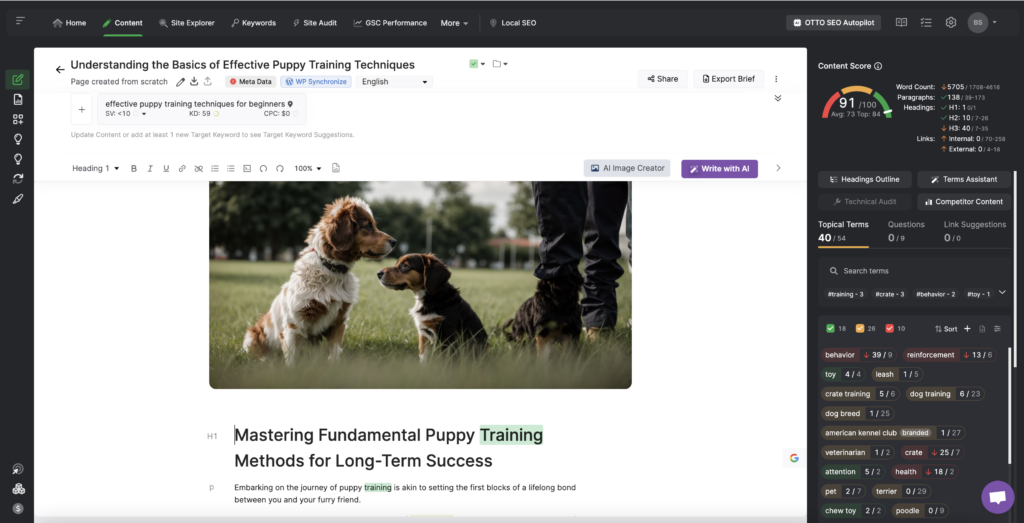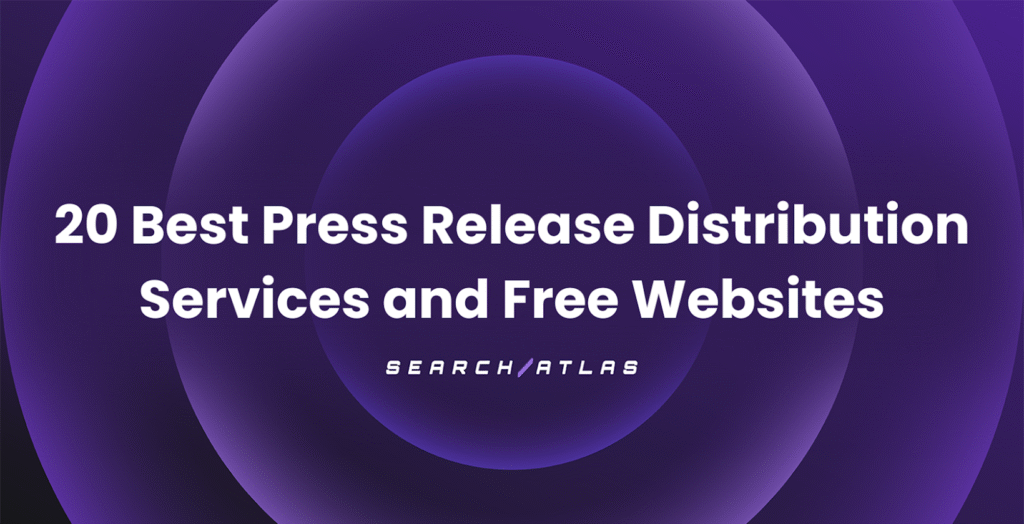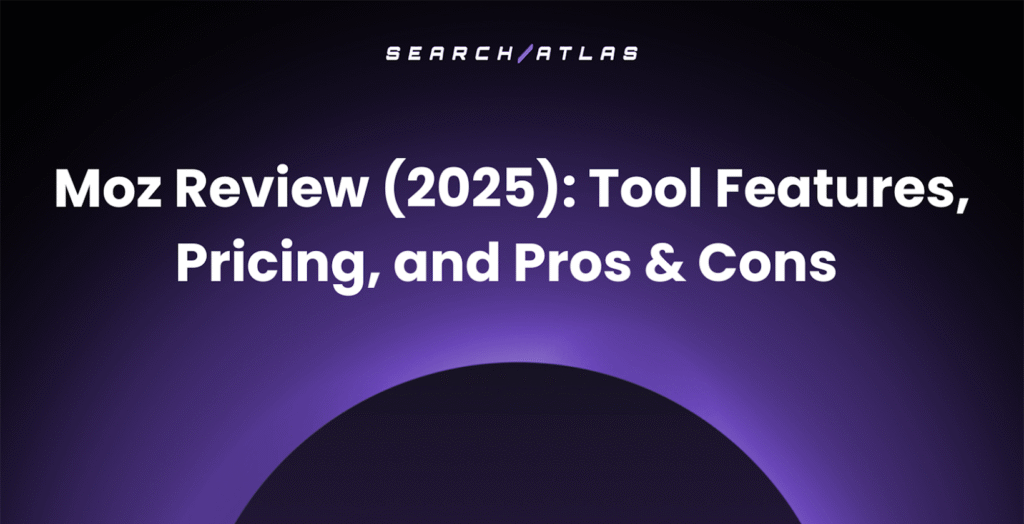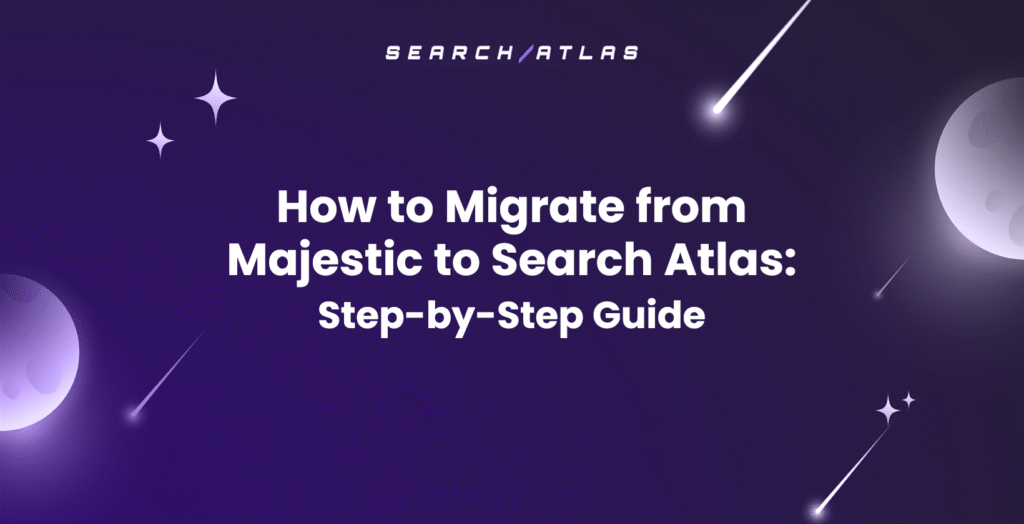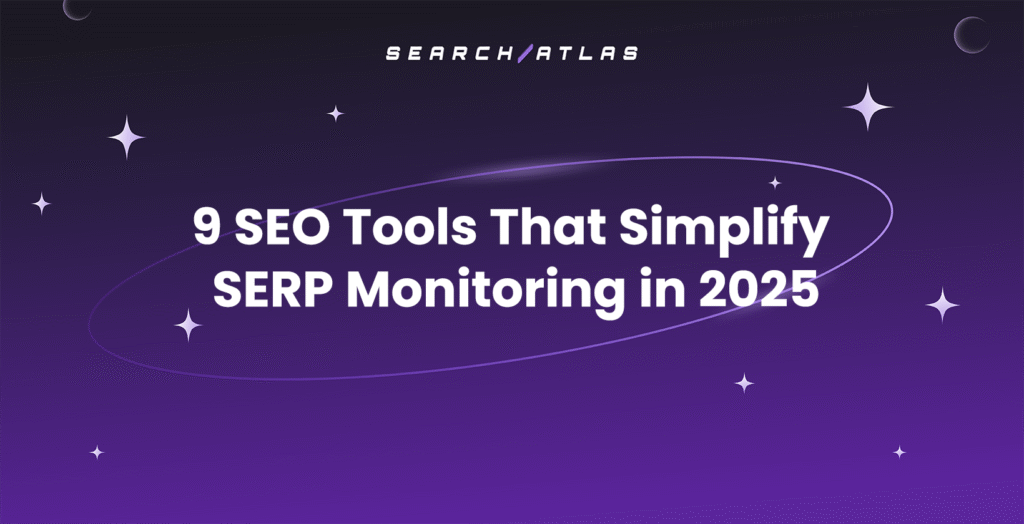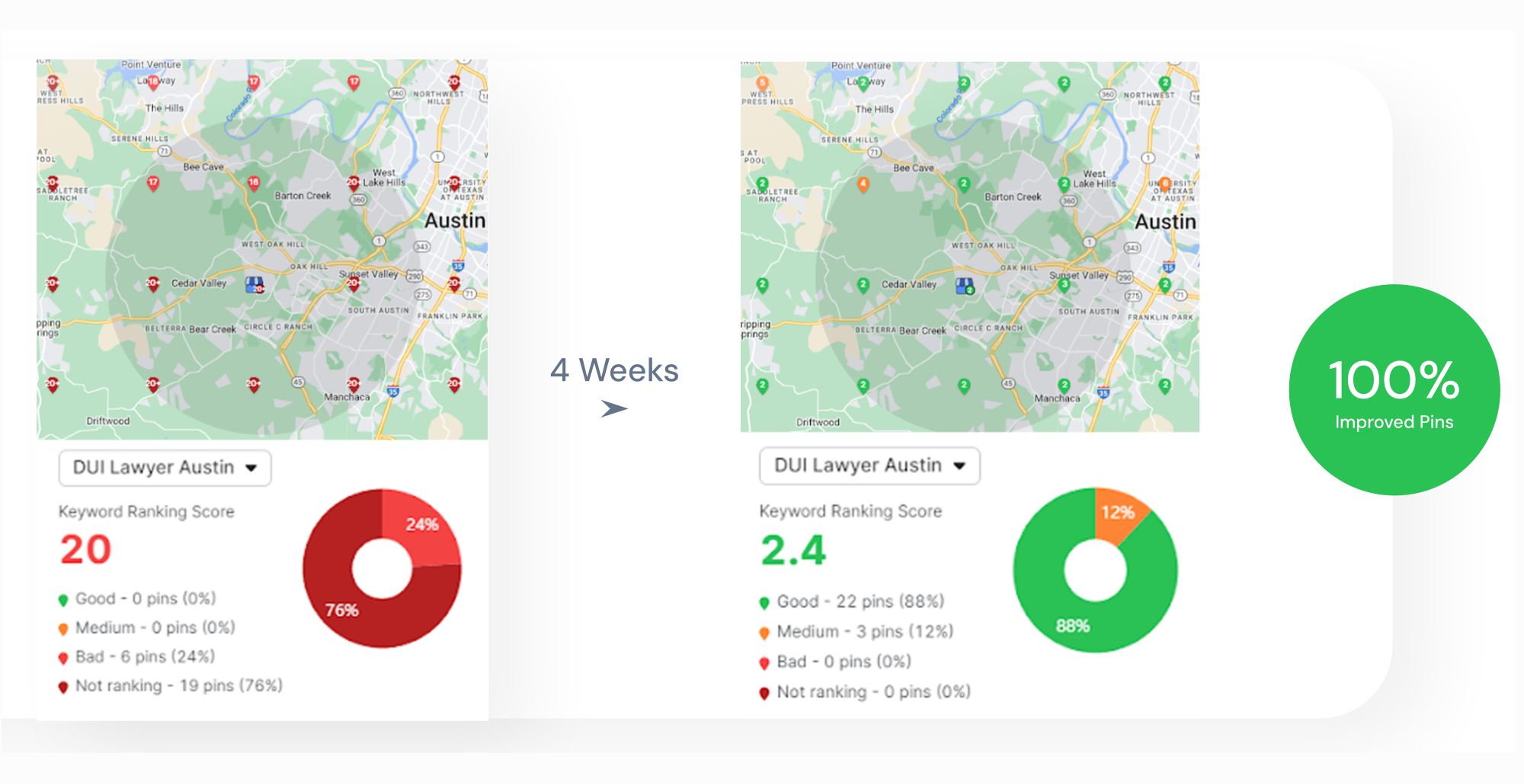Mastering Google’s Knowledge Panels: An in-Depth Exploration
Navigating the realm of Google’s Knowledge Panels can often seem like a voyage into the unknown for business owners and digital marketers seeking to solidify their presence online.
These panels are not merely snippets of information; they are powerful tools that amplify visibility and credibility within the vast digital landscape that is a search engine results page.
Securing and customizing these panels can markedly enhance a user’s interaction with your company or personal brand online, rooting your presence firmly within the user’s search journey.
This exploration offers an in-depth look at the intricacies of Knowledge Panels, from inception to mastery.
Keep reading to unravel the strategies for harnessing the power of these prominently displayed information vaults.
Key Takeaways
- Google’s Knowledge Panels Serve as Quick Reference Guides and Significantly Influence Search Results and User Experience
- A Well-Structured Knowledge Panel Can Elevate an Entity’s Online Presence and Offer a Competitive Edge in Search Visibility
- Consistency and Accuracy of Information Across the Web Are Crucial for the Creation and Maintenance of a Knowledge Panel
- Entities Can Claim and Customize Their Knowledge Panel, Playing an Active Role in the Presentation of Their Digital Profile
- Regular Monitoring and Proactive Updates Ensure Knowledge Panels Remain Accurate and Reflect Any Changes to the Entity’s Information
Understanding the Basics of Google Knowledge Panels
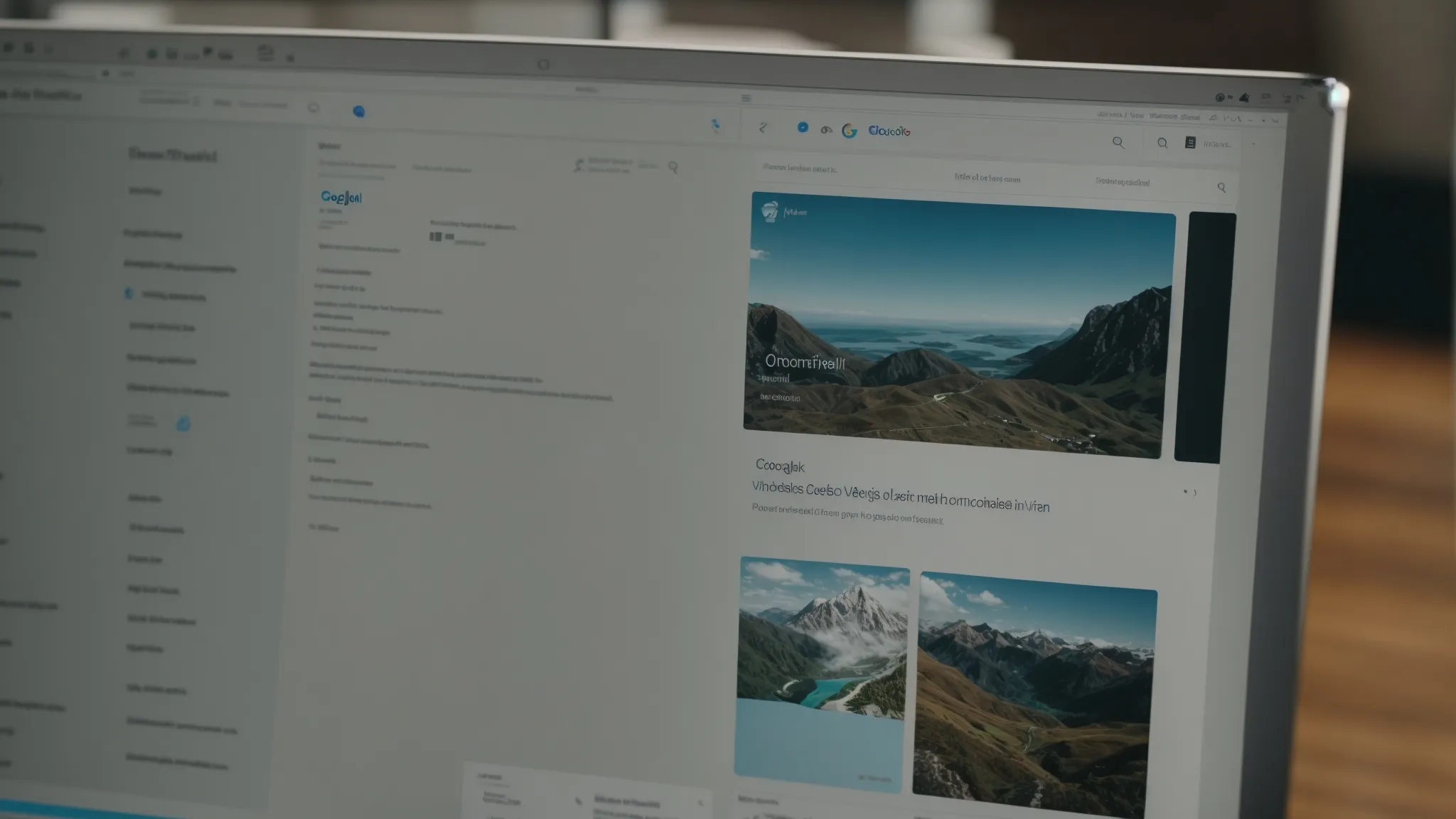
The digital landscape is ever-evolving, and among its many features, Google’s Knowledge Panels stand out as pivotal elements that shape user experience on search engines. These information-rich panels serve as quick reference guides, distilling essential facts and data tailored to audience queries.
As one delves into the intricate world of Knowledge Panels, it becomes apparent that they are not a monolith; rather, they manifest in various forms, each serving a distinct purpose. From those that cater to individuals and organizations to more specialized panels for books and movies, these structures play a critical role in the efficacy of search queries.
By providing searchers with immediate data, often encompassing an organization’s contact information or a person’s notable accomplishments, Knowledge Panels significantly influence the search results page, offering both challenges and opportunities for businesses aiming to capture customer attention.
This introduction lays a foundation for further exploration into the nuances of Knowledge Panels, including their definition, types, and the significant role they play in dovetailing user searches with succinct, relevant information.
In the realm of digital marketing tools, Search Atlas emerges as a comprehensive suite designed to elevate the user’s experience from initial search queries to in-depth content planning. With features like the Site Explorer for detailed website analysis, the Content Planner for strategic content creation, and the SEO AI Otto for artificial intelligence-driven optimization, Search Atlas proves to be an indispensable asset for businesses navigating the complex landscape of online visibility.
Whether it’s uncovering valuable insights through the Domain Authority Checker, analyzing backlinks with the Backlink Analyzer, or refining keyword strategies with the Keyword Research Tool, Search Atlas empowers users to enhance their online presence strategically.
The Topical Map feature offers a unique perspective on creating content that resonates with specific audience interests. By delving into the Site Explorer, users gain a comprehensive understanding of their website’s performance, uncovering opportunities for growth and improvement.
For enterprise-level needs, the Enterprise SEO software provides advanced capabilities to streamline SEO efforts, making it an essential tool for businesses aiming to dominate the digital space. Additionally, the On-Page Audit Tool ensures that website content is optimized for maximum impact.
In the dynamic landscape of SEO, Search Atlas serves as a guiding companion, offering a suite of tools that cater to various aspects of digital marketing. From generating creative blog ideas to conducting in-depth SEO audits, Search Atlas is a versatile resource that empowers users to navigate the intricacies of online visibility successfully.
Embark on a journey of discovery with Search Atlas, where every tool is designed to enhance your digital presence and streamline your SEO strategies.
Defining What a Knowledge Panel Is
A Knowledge Panel is a dynamic information box that appears on the search results page, typically on the right-hand side during a desktop search or at the top on mobile devices. This element swiftly supplies users with an authoritative snapshot of information that is directly connected to their search query.
Google sources the data displayed in these panels from various trusted databases, such as Wikidata, and from information collated by its own algorithms, commonly referred to as the Knowledge Graph. Knowledge Panels aim to synthesize the essence of a search subject into a user-friendly format that broadens searcher understanding without the need for additional clicks.
Different Types of Knowledge Panels Explained
Knowledge Panels manifest in an array of types, each designed to tailorspecific aspects of the query at hand. For instance, an individual may encounter a panel that showcases the intricate web of an organisation’s hierarchy, complete with an executive’s bio and notable alumni, whereas a local business may be represented through its operating hours, reviews, and service offerings, encapsulated within a Google Business Profile.
In the search results, one might also uncover Knowledge Panels dedicated to artistic works – books, music, films – that proffer a rich tapestry of related content, ranging from authorship and publication history to critical assessments and availability. These panels are purposed to elevate the user’s search experience by connecting them with a vault of curated knowledge, succinctly delivered at the zenith of their search journey.
The Role of Knowledge Panels in Search Queries
Knowledge Panels are designed to enhance the search experience by providing concise, authoritative snapshots of information related to user inquiries. As these panels are prominently displayed, they can significantly influence a searcher’s journey, guiding their understanding of a subject without the need to navigate away from the search results.
The existence of Knowledge Panels within search queries underscores their integral function in search engine optimization strategies employed by companies and individuals. Considering that a well-structured Knowledge Panel can offer a competitive edge and foster brand notability, understanding their mechanics proves essential for optimizing digital presence and search visibility.
The Significance of Knowledge Panels for Visibility

Mastering the utilization of Google’s Knowledge Panels is vital for any entity seeking to achieve an elevated online presence and credibility.
These informative panels not only serve as a direct conduit of precision-targeted information to users but also function as beacons of trust, subtly affirming the legitimacy of a company or individual.
As such, grasping the significance of Knowledge Panels can be transformative for brand visibility, empowering businesses to connect with their audience through a polished, data-driven display that reinforces their standing as a reputable source within the search landscape.
Improving Online Presence With Knowledge Panels
Knowledge Panels do not merely convey information; they confer authority. By prominently surfacing in response to a search query, they signal to searchers that the company or individual featured is a recognized entity within Google’s vast informational ecosystem. This validation resonates with users, often correlating with higher trust and engagement rates which, in turn, can enhance the digital footprint of the featured party.
Integrating Schema markup into a business’s online content strategy stands out as an influential factor in influencing the appearance of Knowledge Panels. This structured data markup assists search engines in understanding the content on web pages, thereby improving the chances of acquiring a Knowledge Panel that succinctly displays vital details such as contact information, services, and notable milestones directly within the search results, thus amplifying online presence.
Knowledge Panels as Trust Signals for Users
Google’s Knowledge Panels transcend mere data presentation; they act as emblems of credibility in the eyes of consumers. When a Knowledge Panel accurately depicts a business or individual, it subconsciously affirms to users that the search engine deems the entity as notable and reliable, enhancing the perceived trustworthiness of the brand.
For businesses and professionals, a well-constructed Knowledge Panel not only provides essential information but also acts as an endorser of their stature in the digital realm. This visual endorsement is especially pivotal in a user’s decision-making process, as the presence of a Knowledge Panel can often tip the scales in favor of the associated entity amid a sea of search results.
Unveiling the Creation Process of Knowledge Panels

In the realm of search engines, Google’s Knowledge Panels operate as dynamic synopses of information that enhance the user’s journey from query to knowledge.
As analysts and digital marketing professionals seek to harness the power of these panels, it’s critical to dissect the mechanisms behind their inception.
The formation of Knowledge Panels hinges upon an intricate process where Google meticulously gathers and aggregates data from reputable sources to furnish users with a cohesive, informative snapshot.
This hinges not only on the data itself but also on the multifaceted factors that govern whether and how a panel is generated.
The forthcoming sections will delve into the specifics of how Google ensures data accuracy and relevance, and the various elements that trigger and shape the appearance of these panels in search results.
Understanding How Google Sources Data
The intricate process of Knowledge Panel creation begins with Google’s adept querying of its expansive databases, including the Knowledge Graph — a detailed map of interconnected entities and facts. The search engine scrutinizes this vast pool of information, prioritizing accuracy and timeliness to ensure users receive the most reliable data possible.
To build these comprehensive panels, Google meticulously pulls from authoritative sources such as Wikipedia, Wikidata, and the entity’s own official domains. Moreover, the search engine employs advanced algorithms that extract pertinent details from the knowledge vault, crafting a Knowledge Panel that reflects the entity’s most essential and up-to-date information:
- Detailed biographical data for notable individuals
- Operational insights for companies, including contact information and user reviews
- Concise summaries for books, films, and other creative works, along with their cultural significance
Factors Influencing Knowledge Panel Generation
A Knowledge Panel’s genesis can be significantly influenced by the domain authority of the source website, as well as the notability of the individual or organization it represents. Search engines, particularly Google, rely on domain authority to assess the credibility and relevance of information, giving preference to content from sites recognized for their subject matter expertise and trustworthiness.
Another key factor is the richness and consistency of information across various online platforms. When details about a company or public figure are clearly presented and echoed through multiple authoritative channels, the likelihood of a Knowledge Panel being generated increases:
- Comprehensive details shared consistently on reputable websites
- Accurate and up-to-date data available on official sources
- Robust online presence across social media platforms and industry publications
Strategies to Secure Your Own Knowledge Panel

In navigating the complexities of Google’s Knowledge Panels, entities and individuals must understand the tactical approaches paramount to securing their own panels, thereby reinforcing their online authority and visibility.
This pursuit involves a holistic strategy encompassing the meticulous enhancement of the entity’s home page, stringent oversight to ensure data accuracy across the web, and the strategic implementation of Schema Markup.
Grasping these components and their application can transform an entity’s digital presence, securing a coveted spot in Google’s search results sidebar that symbolizes recognition and expertise in their respective field.
Identifying and Optimizing the Entity’s Home Page
Securing a Google Knowledge Panel begins at home — or more aptly, the entity’s home page. It’s essential to ensure the home page acts as a signal bearer of credibility, providing clear, authoritative information about the company or individual. This involves refining meta descriptions, leveraging strategic keywords, and affirming that the content is optimized for search engines without sacrificing user engagement.
Optimization extends to the technical structure of the site, where implementing schema markup becomes a critical step for entities aiming to enhance their eligibility for a Knowledge Panel. This markup language speaks directly to search engines, illustrating the site’s content in a structured, easily interpretable manner that can be pivotal in the generation of a Knowledge Panel on the search results page.
Ensuring Data Accuracy Across the Web
For entities eyeing the establishment of a Knowledge Panel, ensuring data accuracy across the web is not just beneficial, it is imperative. Uniformity in the portrayal of the entity, spanning from the core elements like history and achievements to the nuances such as leadership and affiliations, solidifies a reputable online profile that search engines favor when constructing Knowledge Panels.
Tight control over the narrative shared on digital platforms safeguards against disparities that can muddle the clarity of information presented to the public. Meticulous management of all digital footprints, from social profiles to official publications, maintains a consistent message and factual integrity that is crucial for earning recognition from the search engine’s algorithms responsible for Knowledge Panel creation.
Using Schema Markup to Enhance Visibility
Utilization of Schema Markup is a strategic method for businesses and individuals aiming to augment their online visibility and foster a more robust presence on search result pages. By embedding this specialized language directly into a website’s code, entities can dictate to search engines the context of their content, which can significantly influence the effective display of a Knowledge Panel that accurately reflects their brand identity.
The proactive employment of Schema Markup acts as a beacon to search engines, signaling the availability of rich, structured information that is ripe for compilation into a Knowledge Panel. Implementing such a nuanced approach to digital content strategy translates into a tangible increase in discoverability, equipping users with immediate, authoritative insights and thus elevating the entity’s prominence within the search ecosystem.
Claiming and Customizing Your Knowledge Panel

In the quest for digital recognition, the act of claiming and customizing a Google Knowledge Panel stands as a crucial milestone for any entity seeking to assert control over their online narrative.
Venturing beyond the mere appearance of these panels, the process requires a structured approach that begins with identity verification, transitions through the stewardship of content, and culminates in ongoing panel management.
The forthcoming discussion will unveil the sequential steps entities must undertake to authenticate their identity on Google, navigate the intricacies of panel ownership, and adhere to best practices that ensure the Knowledge Panel remains an accurate and dynamic reflection of their brand or personal eminence.
Steps to Verify Your Identity on Google
The preliminary step in asserting ownership and customizing a Knowledge Panel is the verification of one’s identity with Google. This process involves a structured approach where the entity submits a verification request through Google’s designated channels, providing evidence of authority over the claimed entity’s domain, be it a website, an official social media account, or an email address affiliated with the domain in question.
Once the initial verification is successful, Google may grant the applicant the ability to influence the information displayed within their Knowledge Panel. The entity is then enabled to curate their online image more accurately on search results, ensuring that the data presented aligns seamlessly with the public persona or company profile they wish to project to users and potential customers.
How to Request Ownership and Make Edits
Requesting ownership of a Google Knowledge Panel is a strategic move toward refining and customizing a digital profile. The specific process requires interested parties to demonstrate their credibility by providing evidence of their relationship to the represented entity, often through direct association with the entity’s verified online properties. Once recognized by Google as the rightful owner, the individual or organization is granted the capacity to propose edits and updates to the panel, ensuring the information remains accurate and reflective of their current status or offerings.
After securing ownership, making edits to a Knowledge Panel involves a meticulous approach to detail and precision. The owner is tasked with reviewing the presented facts and figures, submitting changes that better represent the entity’s attributes or achievements. This critical exercise of content curation, executed within the framework of Google’s guidelines, enables the rightful party to sculpt their Knowledge Panel into a more potent and precise tool for branding and discovery in digital spaces.
Best Practices for Maintaining Your Knowledge Panel
Maintaining the veracity and relevancy of a Knowledge Panel requires continual attention and update practices to safeguard its precision in reflecting the entity’s developments. A proactive stance on content review is imperative; entities should regularly monitor their panels for accuracy, swiftly addressing any discrepancies or outdated information that could mislead searchers or tarnish credibility.
Entities also benefit from responding attentively to user feedback on search engine-generated knowledge panels, which can signal emerging concerns or mistaken data. Sustaining a dialogue with the platform by reporting inaccuracies and submitting verified corrections upholds the integrity of the information, fortifying the trustworthiness that searchers associate with the entity featured in the panel.
Troubleshooting Knowledge Panel Issues

Navigating the complexities of Google’s Knowledge Panels necessitates not just a keen understanding of their creation and optimization but also the skill to address and resolve potential problems that arise.
Such challenges often manifest as unexpected disappearances of Knowledge Panels, inaccuracies in the data displayed, or unanticipated alterations that require vigilant tracking and prompt action.
This segment engages with these complexities, providing a clear path forward for entities and individuals experiencing issues with their Knowledge Panels by dissecting common concerns and delineating strategies to maintain the integrity of their online representation.
Identifying Reasons for Knowledge Panel Disappearance
When a Knowledge Panel vanishes from Google’s search results, the issue typically stems from fluctuations in the algorithm’s assessment of an entity’s notability or authority. The disappearance could be due to a reduction in the quantity or quality of references from authoritative sources that Google’s algorithm relies upon to justify the panel’s presence.
Another factor that may lead to a Knowledge Panel’s disappearance is inconsistency or contradictions within the information presented across the web. Sudden changes or inaccuracies detected by the algorithm can prompt a reevaluation, potentially suspending the panel until verified data is reinstated:
| Reason for Disappearance | Explanation | Potential Remedies |
|---|---|---|
| Algorithmic fluctuations | Changes in Google’s assessment criteria impacting notability and authority. | Enhance the entity’s notability with more authoritative references and resources. |
| Inconsistent information | Conflicting data points across different web sources. | Synchronize information across all platforms to maintain consistency. |
How to Address Inaccuracies in Your Knowledge Panel
Combatting inaccuracies in a Knowledge Panel is a matter of swift and systematic correction. Ownership of the panel is a prerequisite for proposing modifications; hence, entities must first claim their panel to access editing capabilities. Once in control, they can meticulously assess and suggest edits to refine and correct the information showcased.
- Claim ownership of the Knowledge Panel through Google’s verification process.
- Review the displayed information carefully for any misrepresentations or errors.
- Submit accurate, evidence-backed updates for consideration by Google.
Should inaccuracies persist despite updates, entities are encouraged to review their digital presence for consistency. It’s imperative to ensure that all information across various authoritative web sources aligns, as discrepancies can lead to misinformation within the panel, consequently impacting credibility and searcher trust.
Keeping Track of Knowledge Panel Changes and Updates
Maintaining an awareness of changes and updates to a Knowledge Panel is crucial for prompt action and to ensure the panel’s continued accuracy. Entities should establish a routine monitoring process, perhaps via alerts or regular reviews, to detect any alterations immediately: this is integral to sustain the integrity of their representation in search results.
- Set up Google alerts or similar notification systems for mentions of the entity.
- Perform consistent reviews of the Knowledge Panel for unexpected changes.
- Prepare to act quickly with evidence-based information for possible corrections.
It is of the essence for entities to keep their digital information dynamic and aligned with the updates in their Knowledge Panels. This not only fosters trust with users but also assures search engines of the relevancy and accuracy of the panel, thereby supporting its stable presence on search result pages.
Frequently Asked Questions
What are google knowledge panels and why are they important for businesses?
Google Knowledge Panels are information boxes that appear on the right side of the search results page when certain entities, such as businesses, individuals, or organizations, are queried; they aggregate a wealth of relevant data, offering a quick snapshot of information to the searcher. Their importance for businesses lies in enhancing online visibility, credibility, and user engagement by providing a succinct summary of the company, including contact information, reviews, and other pertinent details, thus influencing customer perception and potentially affecting web traffic and sales.
How are knowledge panels created and what factors determine whether a panel appears for a particular entity or organization?
Knowledge panels are generated by search engines through complex algorithms that collect and organize data from various trusted sources, including the Knowledge Graph, Wikidata, and user-submitted information. The appearance of a panel for a given entity or organization is influenced by factors such as the entity’s notability, the availability and quantity of structured data associated with it, and how well it meets the search engine’s criteria for relevance and accuracy within search results.
What are some strategies that can help individuals and companies secure their own knowledge panels?
Individuals and companies can enhance their chances of securing their own knowledge panels by actively managing their online presence and ensuring the information Google has access to is accurate and authoritative. The process typically involves creating or updating relevant content across various platforms, ensuring consistency in public details and engaging in strategic search engine optimization practices directed at establishing notability and relevance for specific search queries.
How can business owners claim and customize their knowledge panels to ensure accurate and up-to-date information?
Business owners can claim their Google Knowledge Panel by locating their panel in search results and clicking the “Claim this knowledge panel” link; they must then verify their identity through the authentication process. To customize and update the information displayed, they should regularly manage their Google Business Profile and ensure that all aspects of their online presence, from their official website to social media profiles, are accurate and reflective of their current business status.
What are some common issues or challenges that individuals and businesses face with their knowledge panels, and how can they be resolved?
Individuals and businesses often grapple with inaccuracies or outdated information in their Knowledge Panels, challenges often rooted in the dynamic nature of search engines and the complexities of search algorithms. Furthermore, achieving notability to gain a Knowledge Panel or enhancing visibility within search query results can be particularly vexing without mastery of specific SEO strategies and data markup techniques.
Conclusion
Mastering Google’s Knowledge Panels is crucial for entities aiming to enhance their online presence and credibility.
Knowledge Panels act as trust signals, offering a direct link to precision-targeted information while affirming the entity’s legitimacy.
To influence the appearance and details in these panels, it is vital to maintain accuracy and consistency across the web and employ strategies such as structured data markup.
Verifying and claiming a Knowledge Panel allows entities to customize and correct their information, fortifying their digital narrative.
Regular monitoring and responsive management of these panels ensure their accuracy, thus preserving the integrity of the entity’s representation in search results.
In summary, effectively leveraging Knowledge Panels can significantly elevate an entity’s visibility and authority in the digital realm.

